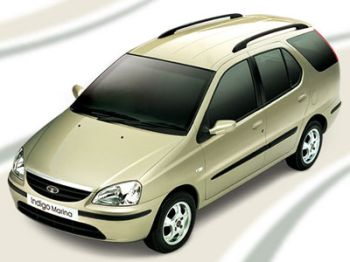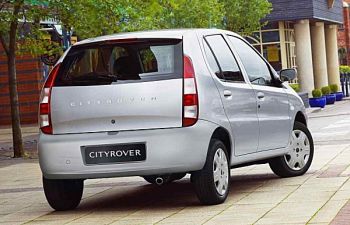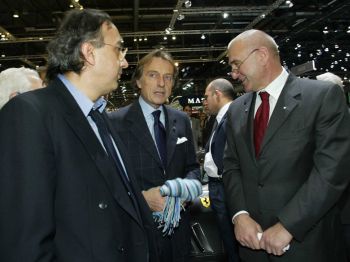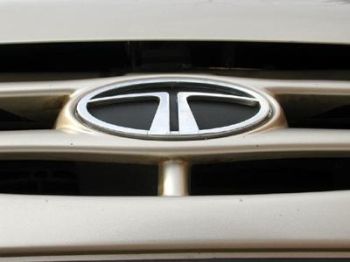|
Indian newspaper
reports last week have suggested that Fiat Group CEO Sergio
Marchionne is discussing a major new industrial agreement
with Tata Motors.
Marchionne is well known to be locked in discussions with
potential automotive sector partners in India as Fiat Auto
looks to re-launch its car operations there, and build a
regional manufacturing hub in a country which offers
potentially huge new market opportunities. Tata Motors is
just one part of the huge Tata industrial conglomerate,
India's largest private sector organisation, which is
controlled by a family of industry tycoons who are also
close friends of the Agnelli family, Fiat's key shareholder
group.
The Tata Group consists of more than eighty different
companies operating in seven distinct sectors. Operational
areas include engineering, materials, energy, chemicals,
finance, communication and IT, tourism, consumer products
and services. The IT division, TCS, in fact last December
concluded a major new agreement with Scuderia Ferrari to
provide information technology and engineering services for
the development of the team's future F1 cars.
Established in 1945, Tata Motors immediately entered into a
collaboration with Daimler Benz of Germany in 1954 to
manufacture commercial vehicles. The collaboration ended
fifteen years later in 1969.
Tata Motors has since grown steadily from strength to
strength. The company has spread its manufacturing
facilities across India by setting up plants at Jamshedpur,
Pune and Lucknow. In 2003 Tata reached he threshold of three
million vehicles produced per year, while the next year saw
the firm buy the former Daewoo industrial vehicles division.
Tata, are now planning to launch a 'super economy' car,
which will cost around just 1,600 euros.
Today, with more
than 130 models on sale, spanning a wide range of Commercial
Vehicles, Passenger Cars and Multi-Utility Vehicles, Tata
are the leading regional player. This production capacity is
coupled with a nation-wide sales, service and spare parts
network. The firm enjoys a significant demand in export
markets like Europe, Australia, South East Asia, Middle East
and Africa. The Company's vehicles are seen in all the
continents, and recently their Indica V2 was rebadged by
MG-Rover and sold in the UK as a 'Cityrover'.
|

 |
|
Tata Motors are
currently India's largest carmaker, their current
range includes the Indigo Marina (top), and the
Indica V2, which is also sold in the UK badged as a
'Cityrover' |
|
|

 |
|
It has been recently
reported that Fiat Group CEO Sergio Marchionne (top
left, with Luca di Montezemolo and Karl-Heinz
Kalbfell), has been in discussions with Indian car
manufacturer Tata (above) regarding possible joint
ventures |
|
|
In his new year address to employees Tata Group Chairman
Ratan N. Tata was in upbeat mood, "We achieved the
highest-ever levels of sales and profits," he said, "we
floated India’s largest initial public offering with our TCS
public issue; and we became the largest Indian business
group in terms of our market capitalisation. These
achievements should be a matter of great pride and
satisfaction to us all, and have only been possible because
of your commitment and support throughout.
"While several Tata companies achieved growth in sales and
market share in India, there was also significant overseas
expansion by some of our companies in 2004. For example,
Tata Motors made a serious entry into the UK, European and
African markets in both passenger cars and commercial
vehicles, and acquired the Daewoo Commercial Vehicle Company
in Korea, which will significantly enhance their product
range and open up new market opportunities in India and
abroad.
"Tata Steel finalised the acquisition of NatSteel in
Singapore, which will give them a market presence in several
Asian countries. The Taj hotels expanded their overseas
operations, and Tetley Tea continued to register impressive
growth and increased global market penetration. VSNL
succeeded in their bid to acquire the global optical fibre
undersea cable network of Tyco, which will provide them with
enormous capacity for broadband and data connectivity. And
together, Tata Steel, Tata Power and Tata Chemicals are
considering major investments in Bangladesh, slated to be
the biggest ever in that country.
"As we face the future, let us continue to display the “Tata
spirit” in striving for excellence and rising to challenges
as we have done before. Let us be more aggressive in
incorporating international expansion possibilities in our
growth plans," Ratan Tata concluded.
|
|
|
|
![]()
![]()